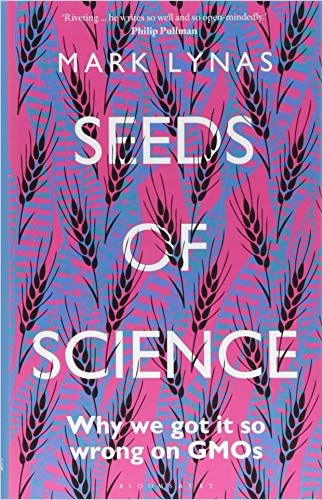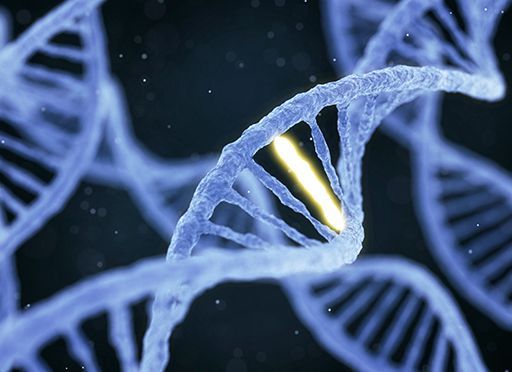Environmental bestseller Mark Lynas traces his profound shift regarding genetically modified food and its consequences.

Harmful or Healthful?
In this saga of refutation and new self-knowledge, Mark Lynas – whose Six Degrees won the Royal Society book prize and became a National Geographic documentary – tells how he had embraced a movement that believes manipulating DNA – the biochemical instructions for living things – leads to global environmental disaster and agribusiness economic dominance. But, he asks in this self-revising exploration: What if he were wrong and what if genetically modified organisms (GMOs) are more helpful than harmful?
Lynas’s articulate, unexpected journey from anti-GMO to pro-GMO raises thought-provoking moral, sociopolitical and scientific questions with surprising answers.
Natural/Artificial
Lynas opens by relating the 1953 discovery of the DNA double helix, which set off a torrent of molecular genetics research. Experiments suggested that gene-splicing – the tool of genetic engineering – occurred in nature. These conclusions spawned a backlash of resistance.
There were plenty of skeptics about Schell and Van Montagu’s achievements at the time.Mark Lynas
Ultimately, challengers didn’t disprove and even confirmed these findings.
Monsanto’s Roundup
The Monsanto Company manufactured the artificial sweetener saccharin, plastics, generic aspirin, AstroTurf and the toxic, Vietnam-era defoliant Agent Orange.
Renowned environmentalist Rachel Carson’s 1962 book Silent Spring helped foment protests against harmful chemicals in food and consumer products.
In 1970, Monsanto created the herbicide glyphosate, which proved safe for animals and degraded quickly in the soil, thus posing a low environmental risk. Monsanto called it Roundup.
You didn’t need to be a rocket scientist to simply plant R R [Roundup Ready] corn and apply…Roundup. Clean fields. High yields. Done. Easy peasy. former Monsanto staffer
Monsanto inserted a bacterium that deactivated the herbicide in corn, soy, cotton and canola seeds. Monsanto sold Roundup Ready crop seeds and Roundup as a package. American farmers embraced Roundup Ready seeds, but the public proved skeptical of Monsanto’s motives.
In court cases in the United States and Canada, farmers claimed Monsanto bullied them into paying technology fees; rulings supported Monsanto and upheld its patents and intellectual property rights.
Deception in Africa
Lynas tells how, throughout Africa, fake news stories undermined scientists seeking to implement GMO crops. An anti-GMO’er claimed, for example, that a GMO corn variety contained genes that made boys act like girls.
[In Uganda] some big-name charities had been spreading myths and conspiracy theories about GMOs that had poisoned the political debate and paralyzed the legislative process for years.Mark Lynas
In Tanzania, viruses were destroying cassava. Researchers genetically engineered a cassava variety that resisted the viruses, but regulations forbade field trials. Anti-GMO groups thwarted drought-tolerant maize, wilt-resistant bananas, improved varieties of cowpeas and eggplants, and new growing techniques.
Lynas’s previous heartfelt stance as an anti-GMO’er may make you slightly skeptical of the fervor of his new position, but he does offer supportive facts for his assertions. His unfortunate use of the phrase “fake news,” however, does little for his credibility.
Scientific Debate
Many scientists called for a halt to genetic engineering, saying the unknowns endangered public health. But they eventually realized initial fears about mutations were overblown. They lobbied lawmakers and halted anti-GMO legislation.
Unused to fighting political battles, the scientists were baffled and frustrated.Mark Lynas
But scientists couldn’t stop activist Jeremy Rifkin. Rifkin, Lynas tells, convinced environmental advocates to oppose genetic engineering. His coalition became the backbone of DNA research resistance. Using lawsuits to slow biotechnology, Rifkin and his followers all but halted US genetic engineering.
Hundreds of millions of dollars…now pour into the wider environmental movement.Mark Lynas
As of 2017, authorities have approved no GMO crop for farming in Europe since 1998. In North America, approximately 300 formal and informal anti-GMO groups receive and spend an aggregate $2.4 billion annually.
Outrage/Facts
A strong moral stand enables the anti-GMO movement to defeat corporate PR and well-researched science. Lynas cites social psychologist Jonathan Haidt, who studied how people rationalize moral outrage. He concluded that trying to convince people with facts and reasoned argument never succeeds. When offered clear and convincing evidence, do reasonable people change their minds? No.
I didn’t want to end up publishing narrow heroes-and-villains caricatures of reality, merely the flip side of what you might read in anti-GMO treatises about the evilness of Monsanto.Mark Lynas
People may be hardwired to reject ideas their peer groups don’t share. Human beings find it unnerving to stray from their pack. When people passionately disagree, Lynas explains, they don’t appreciate the other side’s viewpoint; they try to overpower it.
Benefits
Lynas asserts people and communities need to choose technologies rather than letting corporate strategies or government coercion force technologies upon them. Biotechnology exemplifies the power of scientific research – but, Lynas asks, to whose utility?
We are saturated in values. And the decisions we make are always going to be driven by our social environment, by our political environment, by the values which we hold without necessarily even being aware of.environmental activist George Monbiot
Perhaps the anti-GMO movement speaks, Lynas posits, for those questioning the pace, quality, limits and consequences of change.
Lynas encapsulates his position as: Biotech has decreased the use of agricultural chemicals and increased harvests, improving farm profits. Farming efficiencies produce environmental benefits. Because GMO crops need less pesticide, biodiversity improves.
So let’s hear it for the GMO proponents.Mark Lynas
Peer-reviewed data don’t confirm outlandish claims, such as that GMOs cause weight gain, metabolic diseases or autism. Refuting his earlier assertion about the difficulties of changing moral beliefs, Lynas argues that people must agree about revitalizing the environment and feeding the hungry.
About Face
Given the recognition Lynas gained for his anti-GMO activities, his about face proves an act of informed courage. Lynas’s best-selling environmentally aware nonfiction demonstrates how deeply he vests in scientific evidence; he is a credible science writer. But Lynas is a polemicist, and at times, strident in his polemics. That stridency proves wearing to read and raises instinctual resistance to Lynas’s more passionate arguments. However, he does provide a superb locus for all discussion of GMO food and its consequences.
Mark Lynas also authored Our Final Warning; Six Degrees; High Tide; and The God Species. Other works addressing GMOs include Food 5.0 by Robert D. Saik; Altered Genes, Twisted Truth by Steven Druker; and Food Fight by McKay Jenkins.





